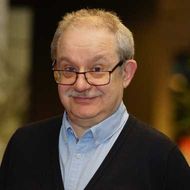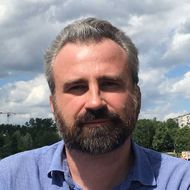- A
- A
- A
- ABC
- ABC
- ABC
- А
- А
- А
- А
- А
Address: 101000, Moscow,
11 Myasnitskaya Ulitsa.
Phone: 8 (495) 772-95-90 *12349
Email: izangieva@hse.ru
The School of Sociology aims to train future social analysts in sociological reasoning to address the needs of social life, business, politics, public administration, and the media. To this end, the school works to develop a close link between education and research, as well as application-oriented education, internationalization of research and education, and close networks with major employers on the labour market.
In press
Abashkin V., Abdrakhmanova G., Vishnevskiy K. et al.
M.: HSE, 2025.
Nastina E., Andiappan M., Miles A. et al.
Journal of Social Psychology. 2025. P. 1-14.
Aristova N., Chadeev V., Iakimova O.
In bk.: 2024 17th International Conference on Management of Large-Scale System Development (MLSD). IEEE, 2024. P. 1-4.
OSF, 2024
Address: 101000, Moscow,
11 Myasnitskaya Ulitsa.
Phone: 8 (495) 772-95-90 *12349
Email: izangieva@hse.ru

Paris is Worth It
- Alexander Yulievich, you have just returned from your business trip to France. What was the purpose of your visit?
- A small delegation from the HSE Faculty of Sociology including myself, Professor Alexander Gofman and Deputy Head of the Department of Economical Sociology Yana Roschina, came to Paris at the invitation of some slavists from the Paris West University Nanterre La Défense (former Paris-10) to participate in their ‘Russian Week'. During this visit we also held intensive negotiations on educational cooperation.
- What is the ‘Russian Week'?
- An enthusiastic group of slavists from this university - Jean-Robert Raviot, Head of Department, and Professor Armel Groppo - organized a series of various events, including lectures by Russian researchers, to give the students and teachers of their university an opportunity to get acquainted with the history, culture and current state of Russian society. Researchers from different areas of science from universities in Novosibirsk, Moscow and other cities participated in it.
- What was the Faculty's contribution to the event?
- We made three presentations: Professor Gofman editor of a recently published volume on traditions and innovations in Russian society presented the main theses from this book; Associate Professor Roschina shared the results of her research on economic strategies and Russian university professors' motivation; and my topic was modern Russian small and medium-sized enterprises.
I have to say that interest in our presentations was overwhelming: the rooms were full, and many questions were asked after the lectures. And not only were Russian students of that university present, but also their French classmates, as well as teachers of several Nanterre faculties and other Parisian universities.
- What did you achieve in your negotiations with French colleagues?
- The opening stage of the negotiations took a long time: despite the desire to help us on the part of the French Embassy and the HSE French Centre Director Irina Maltseva, the initial negotiations took more than two years. But thanks to the initiative of the slavists from the Paris West University Nanterre La Défense we have finally managed to arrive at an acceptable model of the double degree programme. The main point is that our Master's students will be able to spend up to one year studying on a Master's courses in Nanterre. In addition to this, the courses they have taken in HSE will be counted in Nanterre, and if everything goes well (i.e. all courses are successfully completed, their dissertation in French is defended) our students will have an opportunity to receive a diploma from Nanterre, and also HSE diploma when they return.
On the French side, it's likely to be students of Russia and Russian who participate in this programme. Nevertheless, most of them have taken baccalaureate courses in economics or law, so they are not only philologists. They will also have the opportunity to spend up to one year in the HSE, and if they accrue 90 credits in sociology in total in Nanterre and in Moscow, they will be able to receive our diploma.
In addition to that, some studetns can come to the HSE just for additional education, without receiving a diploma.
- Does your faculty already have some experience of cooperating with French universities?
- We are just starting: this year two of our baccalaureate students went to Nanterre, and when they come back they will share their impressions of the education, as well as everyday and organizational issues in terms of living in Paris.
We also plan to build relationships with other universities in France, including those who already work with our other faculties.
- What are the main obstacles to this?
- Firstly, it is a language problem: most French universities only deliver courses in French, and it narrows the spectrum of potential participants from our side. To solve this problem, we are going to focus on broadening contacts with schools where French is taught intensively. In additon to this, together with our French colleagues we are thinking of inviting a PhD or undergraduate student to carry out research and teach additional courses in French in our faculty.
Secondly, unfortunately, most French students do not learn Russian, and even in terms of English there are a limited number of students. That's why the process of increasing the number of courses taught in English at our Master's programmes will be of little help in strengthening our mutual activity. To overcome this problem, we've created a scheme, where on the French side not only sociologists will take part, but also students specializing in Eastern European and Russian studies.
- With all these problems, is it worth all this effort?
- Of course it is. There is a long and proud tradition of sociology in France. It is, to some extent, the cradle of modern European civilization, and there is a steady interest in it among our students. In general, it would be foolish and short-sighted to limit ourselves to the anglo-saxon tradition in our international cooperation.
- What will be the next steps in development of this collaboration?
- I think that as early as in early spring 2010 we shall be able to agree on the selection procedure for Master's programme students who will go to Paris in 2010-2011 academic year. Now there are only a few details left. For example, we need to agree if it will be a joint selection process, or one of the sides will take the lead on this. We might limit this opportunity only to the second year of the Master's programme, or also open it up to first-year students. We need to decide how to limit the number of students on each programme of the accepting university: prior to application, or upon arrival at the accepting university. But we hope we shall solve these issues in the near future.
If we do this, French could be echoing through the halls of the HSE Faculty of Sociology building in the next academic year!
- About
- About
- Key Figures & Facts
- Sustainability at HSE University
- Faculties & Departments
- International Partnerships
- Faculty & Staff
- HSE Buildings
- Public Enquiries
- Studies
- Admissions
- Programme Catalogue
- Undergraduate
- Graduate
- Exchange Programmes
- Summer Schools
- Semester in Moscow
- Business Internship
-
https://elearning.hse.ru/en/mooc/
Massive Open Online Courses
-
https://www.hse.ru/en/visual/
HSE Site for the Visually Impaired
-
http://5top100.com/
Russian Academic Excellence Project 5-100
- © HSE University 1993–2025 Contacts Copyright Privacy Policy Site Map
- Edit



